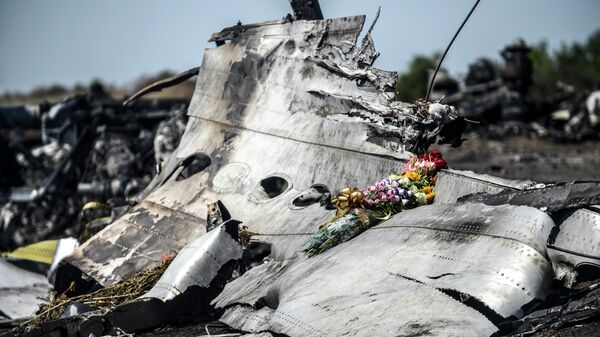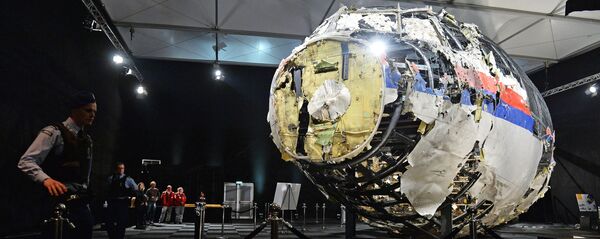The newspaper listed those responsible for determining whether the airspace above Ukraine was safe for flight with regard to the MH17 tragedy. These include the State Aviation Administration of Ukraine, Malaysia Airlines and Malaysia itself as the home country of the company which operated the flight.
"Were the responsible authorities [in Kiev] positioned to decide [whether airspace above 10,000 feet was safe]?" Die Zeit asked. "Possibly not. A war-torn country has many worries: the safety of civilian planes is probably not a priority."
The newspaper maintains that unlike Kiev and Europe, neither Malaysia Airlines nor Kuala Lumpur had all the information needed to convince them to introduce changes in their route map. Some airline companies diverted their planes away from Ukraine's airspace. Others did not want to incur additional losses and extend flight hours in a situation when they were not fully aware of the dangers.
For their part, Europeans knew what was happening.
"European intelligence services, diplomats and politicians were better positioned to asses risks with regard to Ukraine. They were closely monitoring the escalation of fighting but did not draw conclusions as to what this meant for the safety of airline passengers because, as the Dutch Safety Board's report states, 'The focus was mainly on military activities, and the geopolitical consequences of the conflict,'" the newspaper noted.
In other words, European capitals "were blind in one eye," as Die Zeit put it.
Risk management in aviation safety has to be improved. One way of addressing the issue is by creating an independent international agency, which will monitor conflict-ridden areas, the newspaper noted. Markus Wahl, a spokesman for German pilots' union Cockpit, is a vocal advocate of this approach. He also believes that the organization will have to gain access to military intelligence worldwide and will be able to close flight corridors for all airlines.



